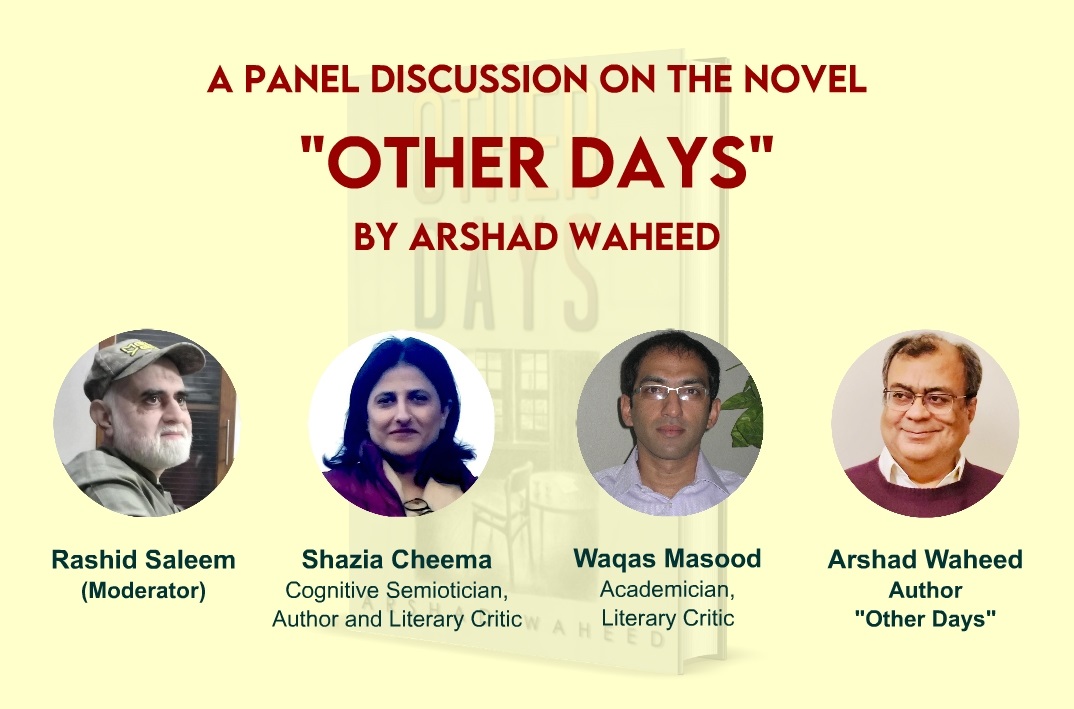
A Panel Discussion on the Novel “Other Days” by Arshad Waheed
About the Novel
Sara, a Pakistani immigrant living in the UK, meets Daud, an old acquaintance, on New Year’s Eve of 2000. This chance meeting triggers the memories she has been trying to evade since she left Pakistan in the late 1970s after the imposition of martial law in Pakistan. It reminds her of her Sheher, the festival of lights, poetry sessions, and the politically charged environment of university campuses.
Struggling with her dreams, kinship and the noise of metanarratives, she embarks upon an unpredictable journey of doubts, fears and hopes—again.
The novel deals with the tensions that characterise the times and regions described, immigration, politics, identity, and the struggle of some dissentient voices trying to survive in the face of a complex social and cultural transition.
About the Author
Arshad Waheed is a novelist. His first novel ‘Gumaan’ was published in 1995. Later he translated the works of Gabriel Garcia Marquez (Love in the Time of Cholera) and Milan Kundera (‘Immortality’, and ‘The Art of the Novel’). He works as a Social Policy consultant. “Other Days” is his latest novel.
Panelists
Waqas Masood
Waqas Masood did his PhD in space plasmas from the University of London and is currently a Professor of Physics at COMSATS University Islamabad. He has a keen interest in literature, poetry and philosophy.
Shazia Cheema
Shazia Cheema did her MA in Cognitive Semiotics from Aarhus University Denmark and is currently registered as a PhD Scholar of Semiotics and Philosophy of Communication at Charles University Prague. She is a Cognitive Semiotician, literary critic, and columnist. She is the author of the book “An Introduction to European Theater—History of Performing Arts from Greek Period to 20th Century”. Her research work focuses on Punjabi Theatre and its movements.
Rashid Saleem
Rashid Saleem is an Associate Professor in English Language and Literature at a Federal College in F-10/4, Islamabad. His interests range from Philosophy, Literature, Education to Linguistics, Psychology, Neurology, Physics, Electronics, Maths and Computer Science.